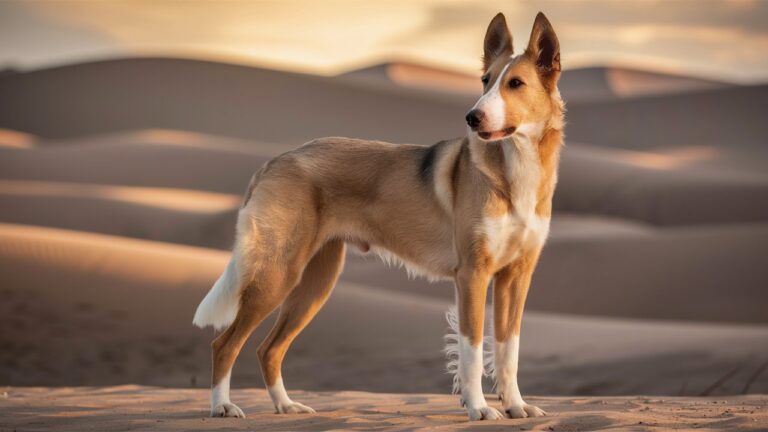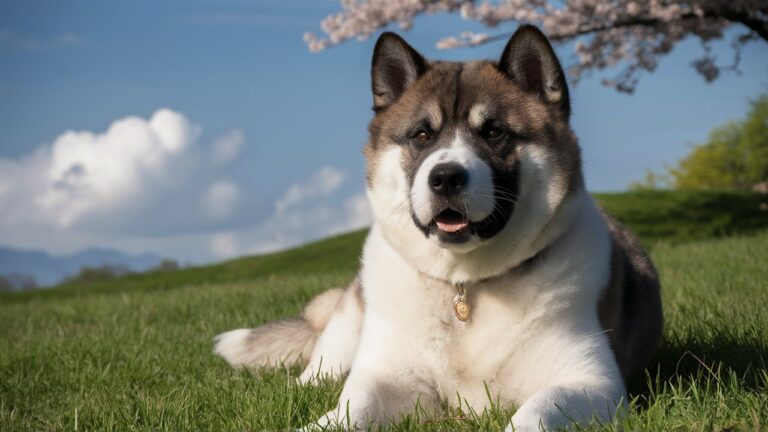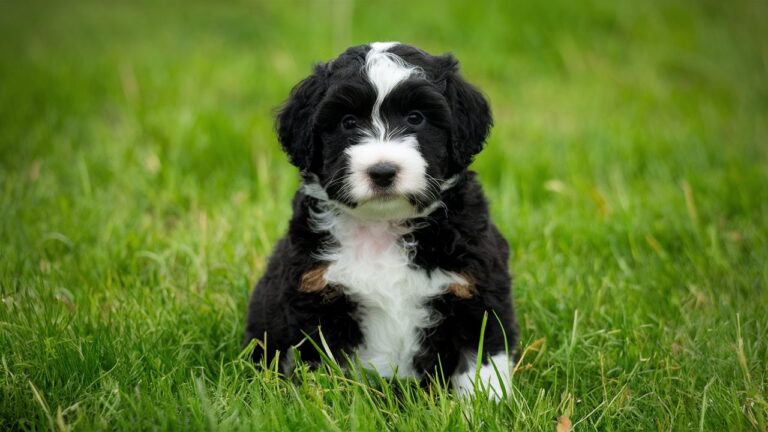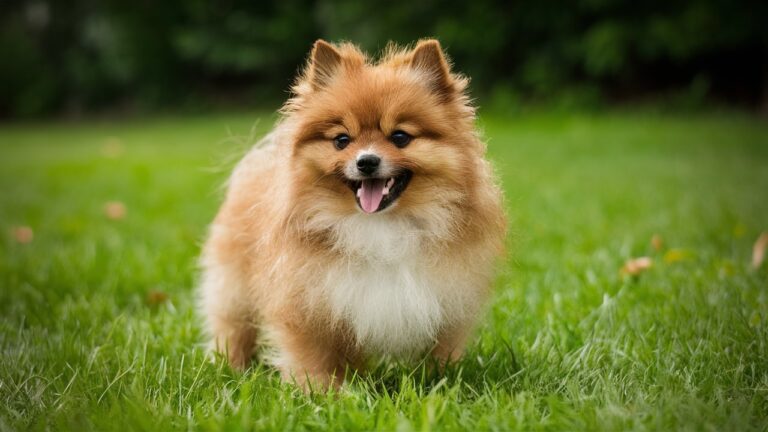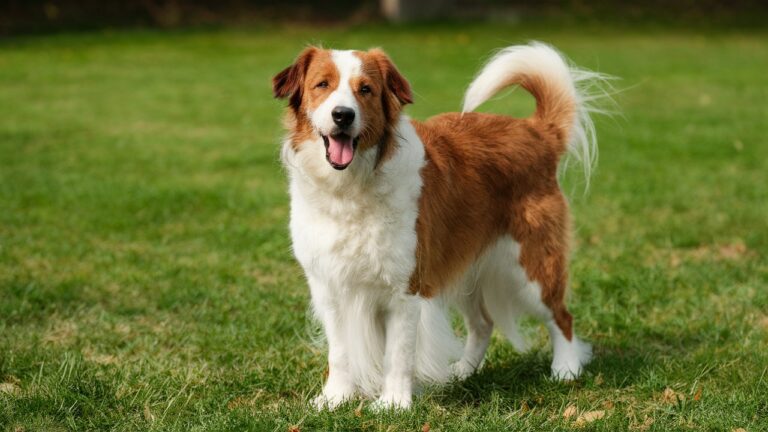The Turkish Pointer: 100% Rich History, Characteristics, and Hunting Legacy
Discovering the Turkish Pointer
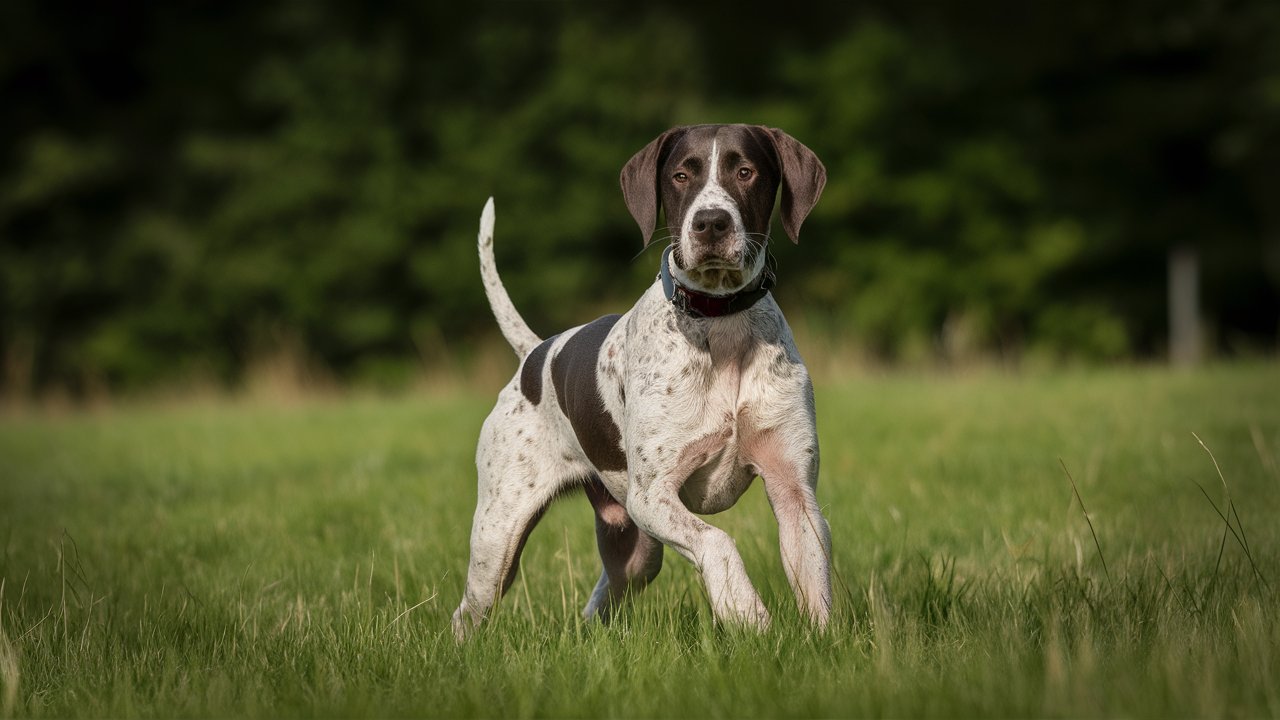
In the vast, rugged landscapes of Turkey, where ancient traditions meet the challenges of modernity, one breed of dog stands out as a symbol of both cultural heritage and exceptional hunting prowess: the Turkish Pointer. Known locally as the “Türkî İşaret Köpeği,” this breed embodies centuries of selective breeding for keen intelligence, unwavering loyalty, and unmatched agility in the field.
My journey into the world of Turkish Pointers began with a crisp autumn morning in the Anatolian countryside. As the sun painted the horizon with hues of amber and gold, I found myself in the company of seasoned hunters and their trusty companions. Among them, a striking Turkish Pointer named Kaya caught my eye. His sleek, muscular frame and alert demeanor spoke volumes about his lineage—a testament to generations of breeders dedicated to preserving the breed’s unique characteristics.
Hunting alongside Kaya and his owner, Mehmet Bey, I witnessed firsthand the Turkish Pointer’s remarkable ability to track game with precision and grace. With each graceful leap over rocky terrain and every subtle flick of his tail, Kaya embodied the essence of what makes Turkish Pointers indispensable to hunters across Turkey and beyond.
Beyond their prowess in the field, Turkish Pointers forge deep bonds with their human companions, becoming not just partners in the hunt but also cherished members of the family. Their gentle yet spirited nature makes them equally adept at charming their way into the hearts of those who seek a loyal and affectionate canine companion.
Throughout this article, we will delve into the rich history, distinctive characteristics, training methods, health considerations, and the ongoing efforts to preserve and celebrate the Turkish Pointer breed. Join me as we explore the world of these remarkable dogs, uncovering stories of triumph, challenges, and the enduring bond between humans and their four-legged counterparts.
History and Origins of the Turkish Pointer
The history of the Turkish Pointer, also known as the Turkish Pointer Dog or Türkischer Vorstehhund, is deeply intertwined with Turkey’s rich cultural heritage and longstanding tradition of hunting. This breed is celebrated not only for its exceptional hunting abilities but also for its distinctive characteristics and historical significance.
Origins in Anatolia
The Turkish Pointer originated in the Anatolian region of Turkey, a land known for its diverse terrain ranging from rugged mountains to fertile plains. This geographical diversity played a crucial role in shaping the breed’s development, as it adapted to various hunting conditions prevalent in the region.
Ancient Roots
The roots of the Turkish Pointer can be traced back to ancient times when hunting with dogs was a fundamental part of Anatolian culture. Dogs were revered for their hunting prowess and loyalty, traits that were highly valued by Turkish hunters. Over centuries of selective breeding, a distinct type of pointer emerged, known for its keen sense of smell, agility, and endurance.
Breeding Traditions
The breeding of Turkish Pointers was traditionally carried out by skilled hunters who sought to enhance specific traits suited for various types of game hunting. These dogs were not only prized for their ability to locate and point game but also for their reliability and adaptability in challenging terrains.
Cultural Significance
In Turkish culture, hunting with dogs has deep cultural significance, symbolizing skill, camaraderie, and respect for nature. Turkish Pointers became integral to this tradition, earning a reputation as loyal companions and effective hunting partners. Their role extended beyond mere utility; they were revered for their contribution to hunting success and as cherished members of hunting communities.
Recognition and Spread
While historically renowned in Turkey, the Turkish Pointer gained international recognition as its hunting prowess and unique characteristics drew attention abroad. The breed’s distinctive appearance and specialized hunting abilities attracted enthusiasts beyond Turkey’s borders, contributing to its spread to other parts of Europe and eventually to other continents.
Modern Developments
In recent decades, efforts to preserve and promote the Turkish Pointer have intensified, both in Turkey and internationally. Breed standards have been established to maintain the breed’s unique traits while adapting to modern hunting practices and lifestyles. Organizations dedicated to the breed’s conservation work tirelessly to ensure its continued presence and relevance in the world of hunting and as beloved companions.
Breed Characteristics of the Turkish Pointer
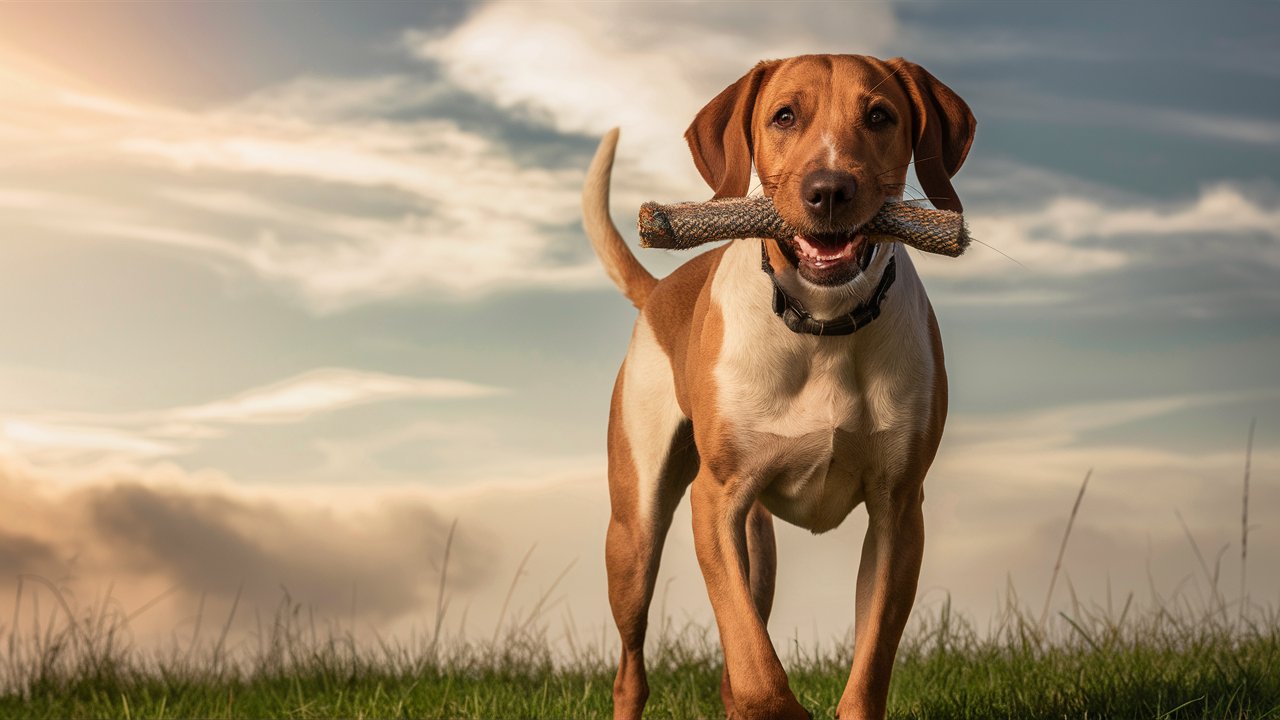
The Turkish Pointer, also known as the Turkish Tarsus Pointer or Türk Tarsus Pointer, is a versatile and esteemed breed renowned for its exceptional hunting abilities and loyal temperament. Originating from Turkey, particularly the Tarsus region, this breed has garnered attention for its distinct physical attributes and strong hunting instincts.
Physical Appearance
Turkish Pointers are medium-sized dogs with a well-balanced and athletic build. They typically stand between 20 to 24 inches (50 to 60 cm) tall at the shoulder and weigh around 40 to 60 pounds (18 to 27 kg). Their muscular bodies are built for endurance, reflecting their heritage as working dogs in rugged terrains.
One of the most striking features of the Turkish Pointer is its coat, which is short, dense, and weather-resistant. The coat comes in various colors, including liver, white, and combinations of these with ticking or patches. This pattern not only adds to their aesthetic appeal but also serves practical purposes in camouflage during hunting.
The head is moderately long with a strong muzzle, giving them a keen sense of smell essential for tracking game. Their ears are set at eye level and can be floppy or semi-floppy, contributing to their alert and attentive expression. The eyes are usually dark and expressive, conveying intelligence and focus.
Temperament and Behavior
Known for their gentle yet determined temperament, Turkish Pointers exhibit a balanced personality that makes them excellent companions both in the field and at home. They are highly intelligent dogs with a strong desire to please their owners, which facilitates training and bonding.
In terms of behavior, Turkish Pointers are energetic and require regular exercise to maintain their physical and mental well-being. They thrive in environments where they can engage in activities that stimulate their natural instincts, such as hunting, tracking, or participating in canine sports like agility or obedience trials.
While they are devoted to their families, Turkish Pointers may exhibit a reserved nature around strangers, making them effective watchdogs. Early socialization is crucial to ensure they develop into well-adjusted dogs that are comfortable in various social situations.
Hunting Instincts
As descendants of skilled hunting dogs bred by Turkish hunters for centuries, Turkish Pointers possess exceptional hunting instincts. They are renowned for their keen sense of smell and ability to track game over diverse terrains, including rugged mountains and dense forests. Their agility and stamina allow them to cover long distances efficiently, making them valuable assets in hunting expeditions.
During hunts, Turkish Pointers display a natural aptitude for pointing and retrieving game, traits that have made them indispensable to hunters seeking reliable partners in the field. Their innate intelligence and adaptability enable them to adjust their hunting style to different prey and environmental conditions, showcasing their versatility as working dogs.
Training and Exercise for the Turkish Pointer
Training and exercise are crucial aspects of caring for a Turkish Pointer. Known for their intelligence and energetic nature, Turkish Pointers thrive with structured training and ample physical activity. This section will explore effective training techniques, exercise requirements, and personal anecdotes that highlight the breed’s unique training needs.
1. Training Techniques
Turkish Pointers are highly trainable, thanks to their intelligence and eagerness to please their owners. However, they can also be independent and strong-willed, requiring consistent and patient training methods. Here are some effective techniques:
- Positive Reinforcement: Using treats, praise, and rewards to reinforce desired behaviors such as sitting, staying, and retrieving.
- Consistency: Establishing clear rules and expectations from a young age helps Turkish Pointers understand boundaries and appropriate behavior.
- Socialization: Exposing Turkish Pointers to different people, animals, and environments early on helps prevent shyness or aggression.
- Obedience Training: Teaching basic commands like “sit,” “stay,” “come,” and “heel” lays a solid foundation for more advanced training.
Personal Anecdote: During my time training a Turkish Pointer named Cinar, I found that incorporating short, focused training sessions multiple times a day was more effective than longer sessions. Cinar responded well to treats and verbal praise, especially when learning new commands like “fetch” and “leave it.” His eagerness to learn made our training sessions enjoyable and rewarding.
2. Exercise Needs
Turkish Pointers are bred for endurance and agility, making regular exercise essential for their physical and mental well-being. Without sufficient activity, they may become bored or exhibit destructive behaviors. Here’s how to meet their exercise requirements:
- Daily Exercise: Aim for at least 60-90 minutes of physical activity each day, such as brisk walks, jogging, or play sessions in a secure area.
- Active Play: Engage Turkish Pointers in games that stimulate their natural instincts, like retrieving balls or playing tug-of-war.
- Hunting Simulations: If possible, provide opportunities for scent games or simulated hunting exercises to satisfy their innate hunting drive.
- Variety: Rotate activities to prevent boredom and keep them mentally stimulated. Consider activities like hiking, swimming, or agility training.
Personal Anecdote: I recall a weekend camping trip where I brought along my Turkish Pointer, Ayaz. The rugged terrain provided a perfect environment for him to explore and use his natural hunting abilities. Throughout the trip, Ayaz eagerly joined in our hikes, eagerly exploring the surroundings and even retrieving sticks from the water. His enthusiasm for outdoor activities reinforced my belief in the breed’s need for regular, varied exercise.
3. Challenges and Tips
Despite their intelligence and athleticism, Turkish Pointers may present challenges during training and exercise:
- Stubbornness: Some Turkish Pointers may test boundaries or resist commands, requiring patience and consistent training.
- Energy Levels: Younger Turkish Pointers, in particular, may have high energy levels that need to be channeled appropriately to prevent destructive behaviors.
- Heat Sensitivity: Due to their dense coat, Turkish Pointers may struggle in hot weather. Exercise them during cooler times of the day and provide plenty of water breaks.
Personal Anecdote: When I first started training my Turkish Pointer, Toprak, I faced challenges with his independent nature. By establishing a routine that included both mental and physical stimulation, such as puzzle toys and long walks in different environments, I was able to keep him engaged and responsive during training sessions.
In conclusion, training and exercise are vital components of caring for a Turkish Pointer. With patience, consistency, and an understanding of their unique needs, owners can cultivate a well-behaved and happy companion that thrives on mental and physical stimulation.
Health and Care of the Turkish Pointer
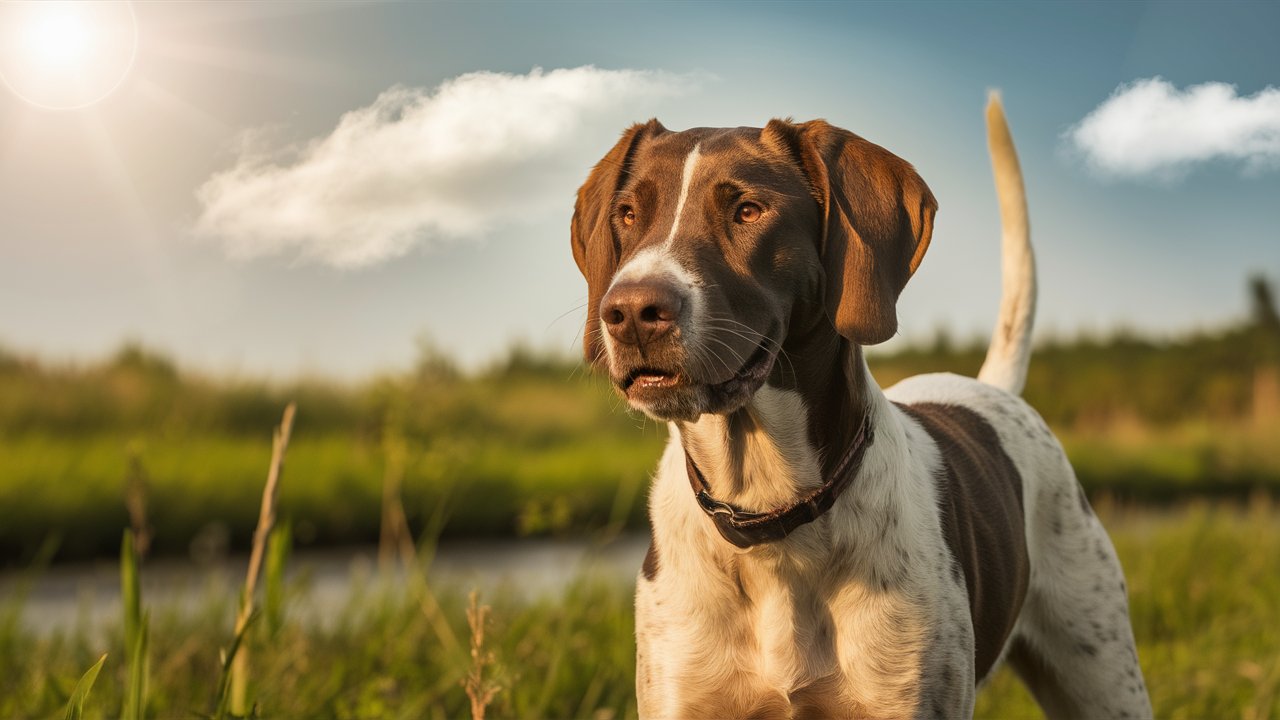
The health and well-being of any dog breed, including the Turkish Pointer, are paramount to ensuring a long, happy life. In this section, we will explore common health concerns, nutritional needs, grooming requirements, and proactive care strategies tailored specifically to Turkish Pointers.
Common Health Issues
Like all breeds, Turkish Pointers may be prone to certain health conditions. While they are generally robust dogs, prospective owners should be aware of potential issues that could affect their pet’s health:
- Hip Dysplasia: A condition where the hip joint doesn’t develop properly, leading to discomfort and mobility issues.
- Elbow Dysplasia: Similar to hip dysplasia, this condition affects the elbow joints and can cause lameness.
- Ear Infections: Due to their floppy ears, Turkish Pointers may be more susceptible to ear infections. Regular cleaning and inspection are essential.
- Entropion: A genetic condition where the eyelid rolls inward, causing irritation to the eye.
- Bloat: Also known as gastric torsion, this condition is more common in deep-chested breeds like Turkish Pointers. Feeding smaller, more frequent meals and avoiding vigorous exercise after meals can help reduce the risk.
Regular veterinary check-ups are crucial to detect and address any health issues early. Responsible breeders often screen their breeding dogs for genetic conditions to minimize the risk of passing them on to offspring.
Nutritional Needs
Proper nutrition is fundamental to the health and vitality of Turkish Pointers. Here are some key considerations:
- High-Quality Diet: Choose a premium dog food that meets the nutritional needs of active breeds like dog this breed. Look for formulations that include animal-based proteins and are free from artificial additives.
- Portion Control: Obesity can lead to various health problems, so it’s important to feed your Turkish Pointer according to their age, weight, and activity level. Avoid overfeeding and monitor their body condition regularly.
- Hydration: Always ensure fresh water is available, especially after exercise or on hot days.
- Special Dietary Needs: Some Turkish Pointers may have allergies or sensitivities to certain ingredients. Consult with your veterinarian if you suspect food allergies, and consider hypoallergenic or specialized diets if necessary.
Grooming Requirements
The Turkish Pointer’s coat is short and dense, requiring minimal grooming compared to longer-haired breeds. However, regular grooming routines should include:
- Brushing: Weekly brushing helps remove loose hair and distribute natural oils, keeping the coat shiny and healthy.
- Bathing: Occasional baths with a mild dog shampoo are sufficient unless your Turkish Pointer gets exceptionally dirty.
- Dental Care: Brush your dog’s teeth regularly to prevent dental issues. Dental chews or toys can also help maintain oral hygiene.
- Nail Trimming: Keep your Turkish Pointer’s nails trimmed to a comfortable length, as overly long nails can cause discomfort and affect their gait.
Exercise and Mental Stimulation
Turkish Pointers are energetic dogs bred for hunting and outdoor activities. Regular exercise is essential to their well-being:
- Physical Activity: Provide daily opportunities for exercise, such as long walks, jogging, or play sessions in a securely fenced yard.
- Mental Stimulation: Engage your Turkish Pointer’s mind with interactive toys, obedience training, or scent games to prevent boredom and destructive behaviors.
Environmental Considerations
- Temperature Sensitivity: Turkish Pointers can tolerate a range of temperatures but may struggle in extreme heat or cold. Provide shade and fresh water during hot weather, and consider a coat or sweater in colder climates.
Hunting Legacy
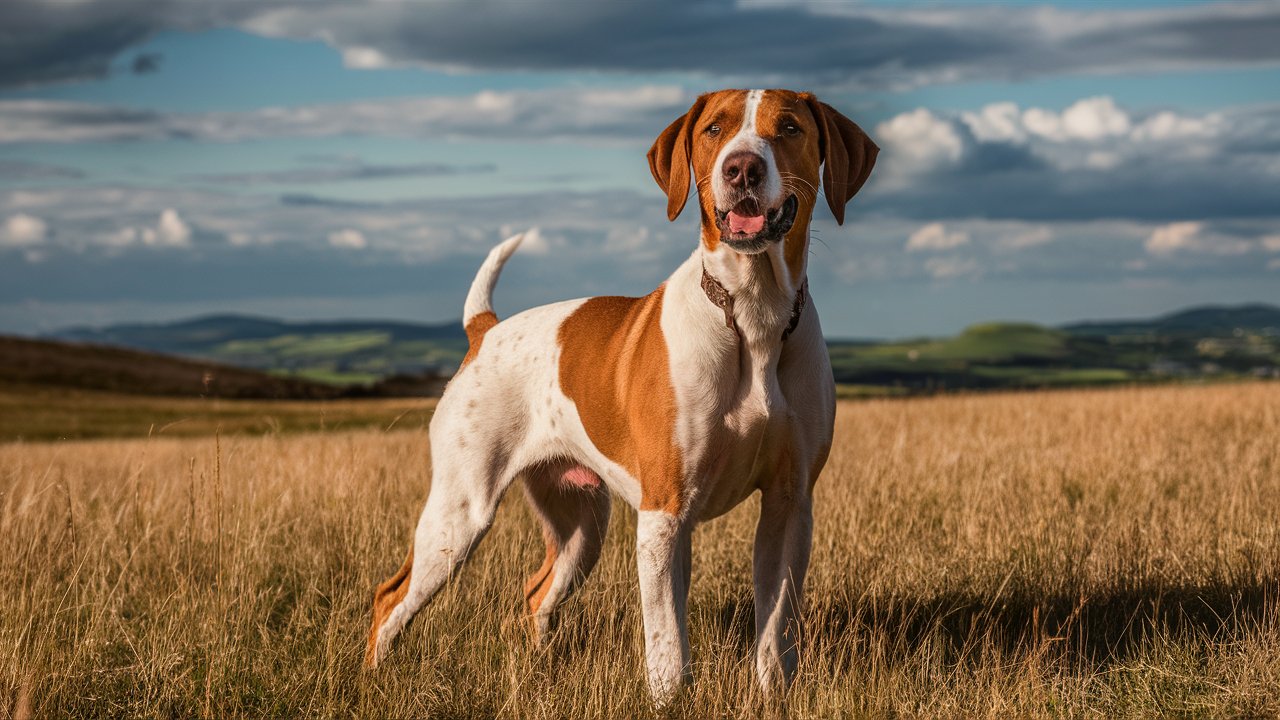
The Turkish Pointer, known for its keen senses and exceptional hunting abilities, boasts a storied legacy deeply rooted in Turkey’s rich hunting traditions. From ancient times to the present day, these dogs have been indispensable companions to hunters across the rugged landscapes of Anatolia. Their unique characteristics and unwavering loyalty have earned them a revered status among hunting enthusiasts worldwide.
Historical Role
The history of the Turkish Pointer as a hunting companion dates back centuries, where they were originally bred by nomadic tribes and later refined by Turkish hunters. Their primary role was to assist in hunting various game species prevalent in the region, including wild boar, deer, and upland birds such as partridges and quails. Known for their agility, stamina, and sharp sense of smell, Turkish Pointers were essential partners in ensuring successful hunts in diverse terrains ranging from dense forests to open plains.
Distinctive Characteristics
Physically, Turkish Pointers exhibit a robust build with a muscular frame designed for endurance and speed. Their short, dense coats provide protection against harsh weather conditions prevalent in Turkey’s varied landscapes, allowing them to perform effectively during long hunting expeditions. Their keen eyesight and acute hearing complement their exceptional olfactory senses, making them adept at locating and flushing out game with precision.
Traditional Hunting Techniques
Traditional hunting techniques involving Turkish Pointers often highlight the bond between hunter and dog. Utilizing a combination of stalking and pointing behaviors, these dogs would locate game by scent, freeze in a characteristic pointing stance to alert hunters, and then flush out the birds or mammals upon command. This methodical approach not only demonstrates the breed’s intelligence but also underscores their role as strategic assets in the pursuit of game across challenging terrains.
Modern Applications
In contemporary times, Dog this breeds continue to showcase their versatility beyond traditional hunting roles. While their skills remain highly valued in competitive field trials and hunting tests, their gentle demeanor and adaptability have also endeared them to families seeking loyal companions. Recognized for their innate ability to bond closely with humans, Turkish Pointers excel in various canine sports and activities, further highlighting their agility and trainability.
Personal Insights
Reflecting on personal experiences with Turkish Pointers in hunting contexts reveals poignant moments of camaraderie and shared accomplishments. Whether navigating rugged terrain or patiently awaiting the flush of game birds, these dogs exemplify the essence of partnership and mutual respect between hunter and companion. Each successful hunt becomes a testament to the breed’s enduring legacy and their integral role in preserving Turkey’s cultural heritage through sustainable hunting practices.
Conclusion
The Turkish Pointer stands as a testament to the enduring bond between humans and dogs, forged through centuries of shared pursuit and companionship. From its origins in Turkey to its growing popularity worldwide, this breed embodies resilience, intelligence, and a deep-rooted instinct for hunting. Beyond its remarkable skills in the field, the Turkish Pointer has earned a place in hearts and homes as a loyal and versatile companion.
As we celebrate the Turkish Pointer’s rich heritage and unique attributes, it is imperative to recognize the efforts of breed enthusiasts and conservationists in preserving its legacy. Through responsible breeding practices and advocacy for its cultural significance, we can ensure that future generations continue to benefit from the companionship and contributions of this exceptional breed.
In closing, whether in the field or by our side, the Turkish Pointer continues to inspire with its unwavering loyalty, boundless energy, and steadfast devotion. May its legacy endure, cherished and honored, for years to come.

